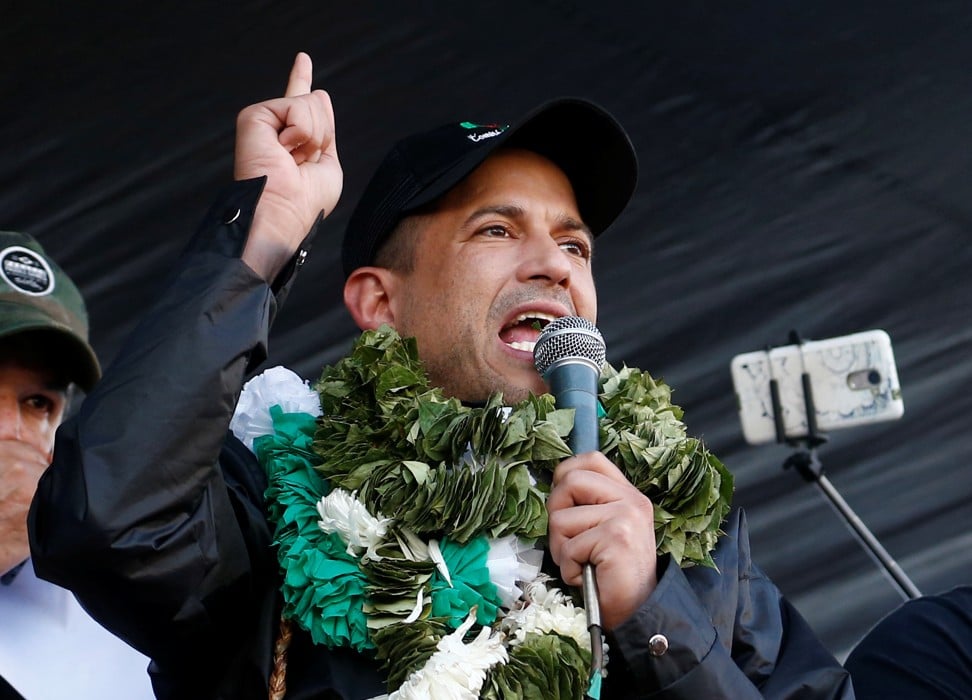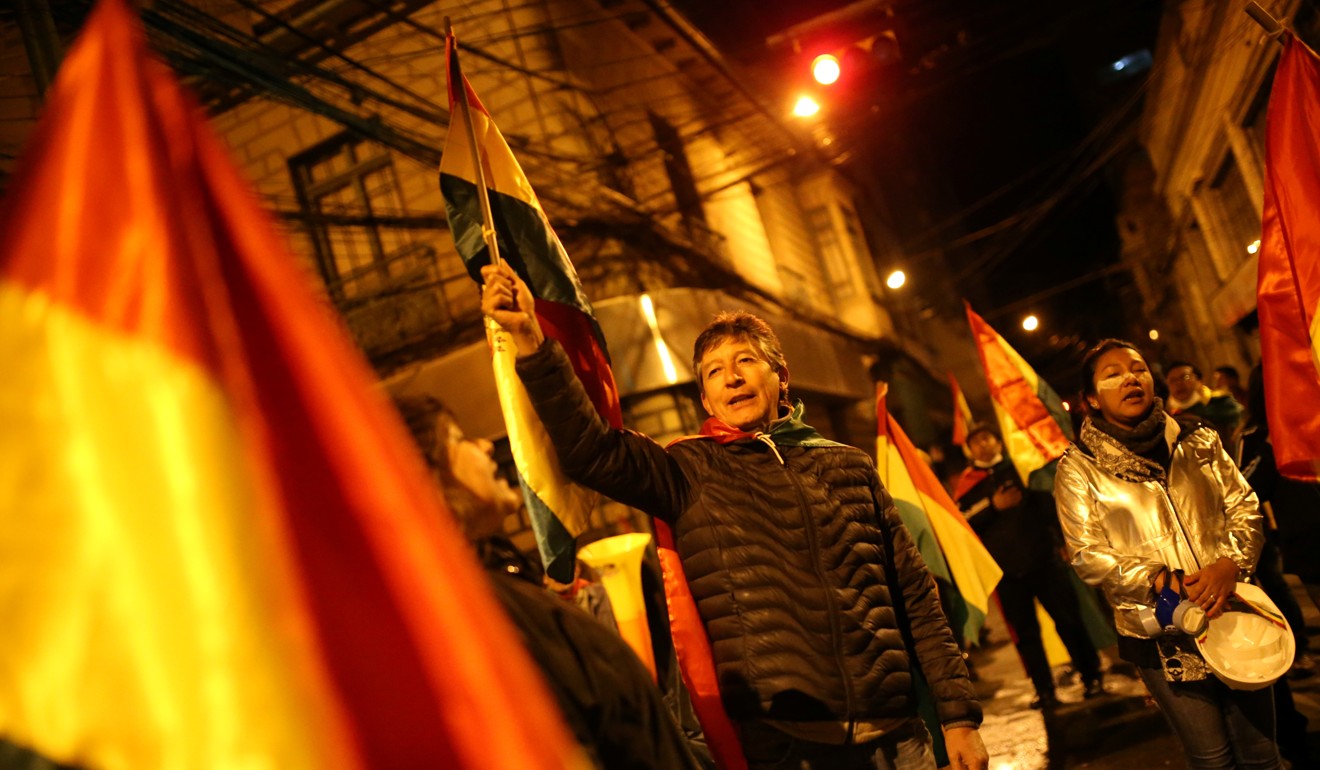
Bolivia’s unrest grows as police join protests against President Evo Morales’ claimed re-election
- The Defence Minister described the act as a ‘police mutiny’, but rejected the idea of a military intervention ‘at this time’
- The disputed results of the October 20 election have triggered a wave of protests, which have left three dead and more than 300 injured

Police in three Bolivian cities joined anti-government protests on Friday, in the first sign security forces are withdrawing support from President Evo Morales after a disputed election that has triggered violent riots.
Defence Minister Javier Zabaleta described the move by officers as a “police mutiny”, but he rejected the idea of a military intervention “at this time”.
“We trust that the police commander can now get those police who for some reason are doing acts of disobedience to reflect and we are sure the police will continue to fulfil their constitutional job to safeguard the people,” Zabaleta said on state television.
Morales convened an emergency meeting with some of his ministers. The scope of the police rebellion was not immediately clear.

The disputed results of Bolivia’s October 20 election have triggered a wave of protests across the nation, which have left at least three dead and more than 300 wounded.
On Friday, dozens of police were observed to join demonstrators marching along Prado Avenue in the capital and shouting slogans against Morales.
Bolivian television broadcast footage of police shaking hands with demonstrators in downtown La Paz – a stark contrast to the last three nights, when the two sides clashed.
In some La Paz neighbourhoods, police retreated to their barracks rather than take on protesters who shouted: “Police, our friends, the people are with you.”
Earlier in the day, opposition leader Luis Fernando Camacho vowed not to leave the capital of La Paz until Morales personally accepted a resignation letter drafted for him. At a separate public event, Morales repeated that he would not resign.
In the evening, a small group of police officers staged a rebellion in the central Bolivian city of Cochabamba, apparently demanding the resignation of their commander, who has been accused of siding with Morales’ supporters during clashes this week that left one person dead and more than 100 injured.
Television stations broadcast images of the 18 police officers standing on the roof of the special operations tactical unit in Cochabamba, waving flags and singing the national anthem as a large crowd of people in the street cheered.
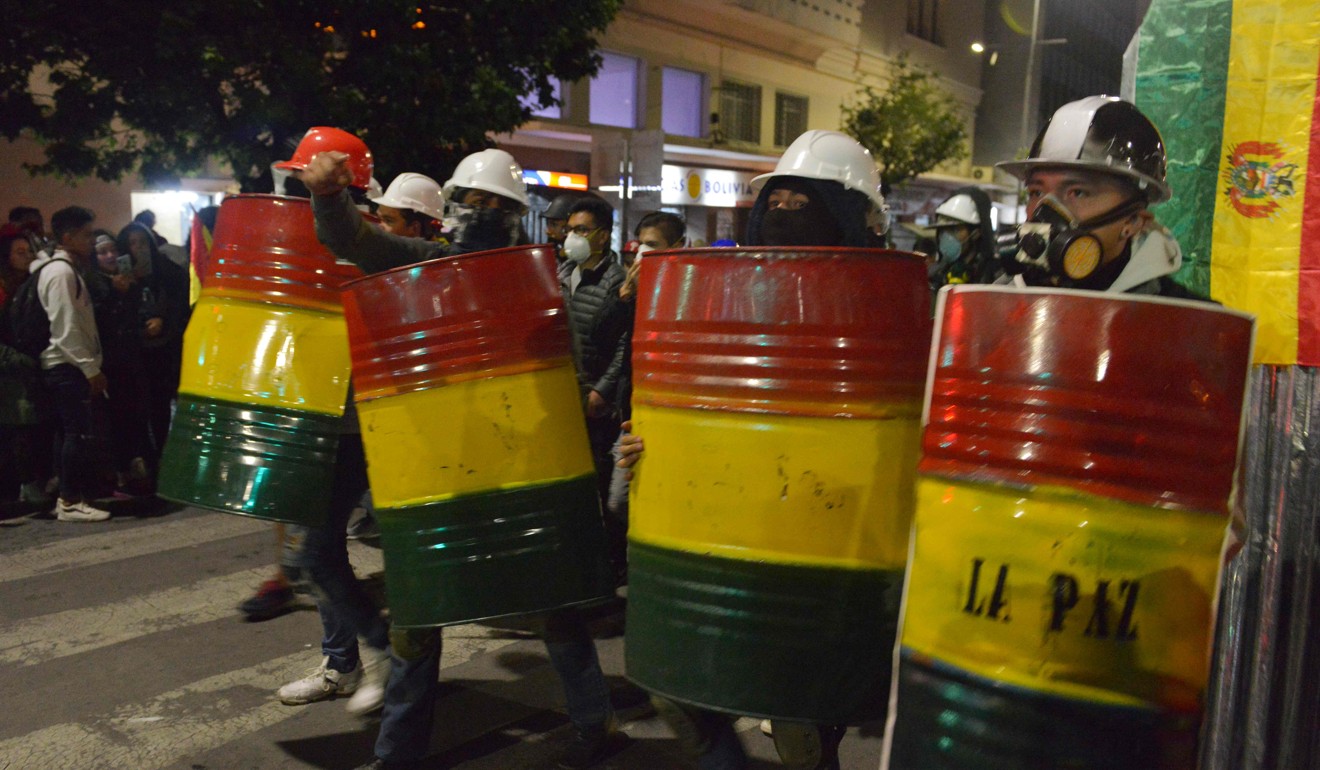
Hundreds of residents in other cities clamoured outside local police stations urging officers to “follow their example”.
Police in Santa Cruz, an opposition stronghold, affixed a sign on their station saying they were revolting. Police officers in other cities left the streets and returned to their stations, without explaining why.
Morales convened an emergency meeting with his ministers and military high command to analyse the situation.
“There is no order. There will be no military operation at this time. It’s discarded,” Zabaleta said following the meeting.
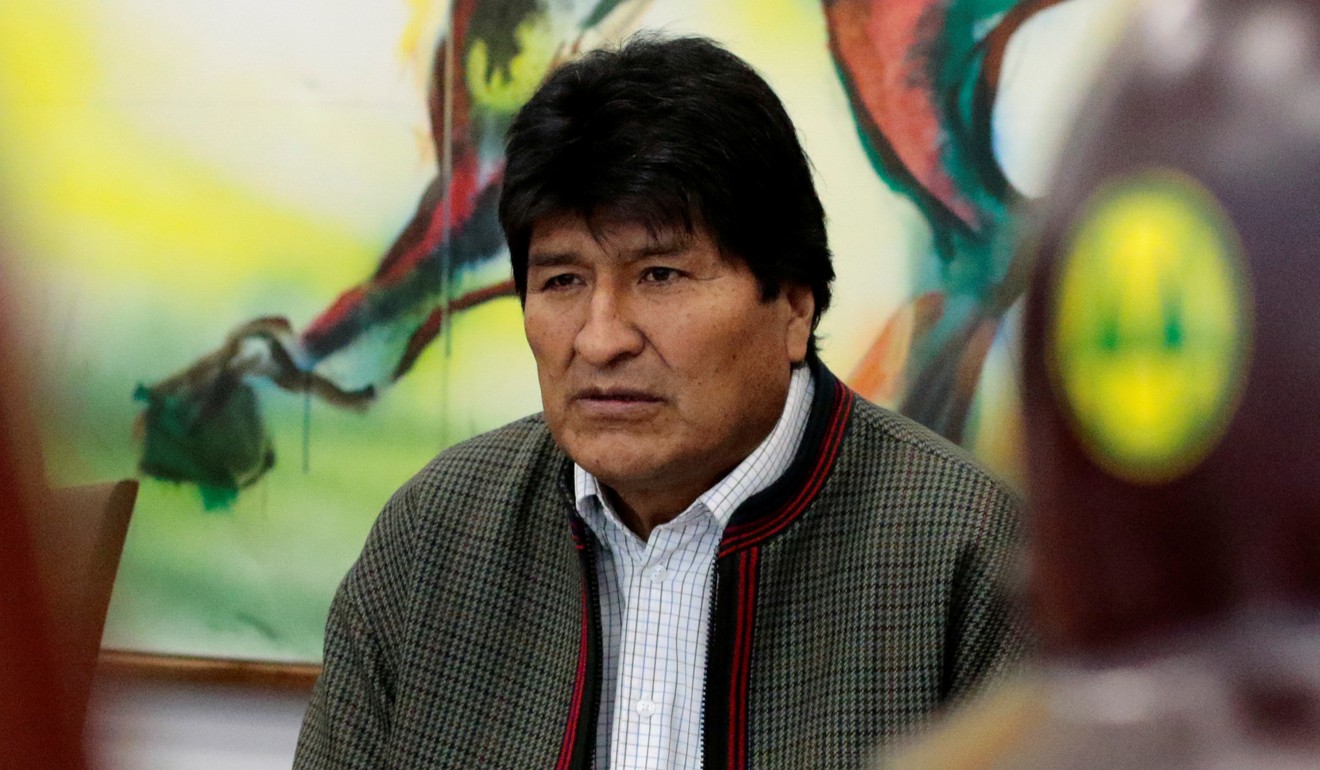
General Yuri Calderón, head of the national police, had previously denied that a police rebellion was under way and called the Cochabamba incident “isolated.”
“There is normalcy in the rest of the country and we hope that services will resume,” he said.
Later, the government later denounced what it called “an attempted coup,” accusing the opposition of plotting to oust Morales.
Morales declared himself the outright winner even before official results indicated he obtained just enough support to avoid a run-off with former President Carlos Mesa. But a 24-hour lapse in releasing vote results fuelled allegations of fraud by the opposition.
The Organisation of American States is conducting an audit of the election count and their findings are expected Monday or Tuesday. The opposition says it will not accept the results because they were not consulted on how the process would unfold.
Protests have been most intense in La Paz, Potosí and Santa Cruz, that latter an opposition stronghold where Camacho, president of the Pro Santa Cruz Civic Committee, is based.
On Thursday in La Paz, members of the tourism sector marched in the middle of an anti-Morales demonstration holding white balloons and urging calm.
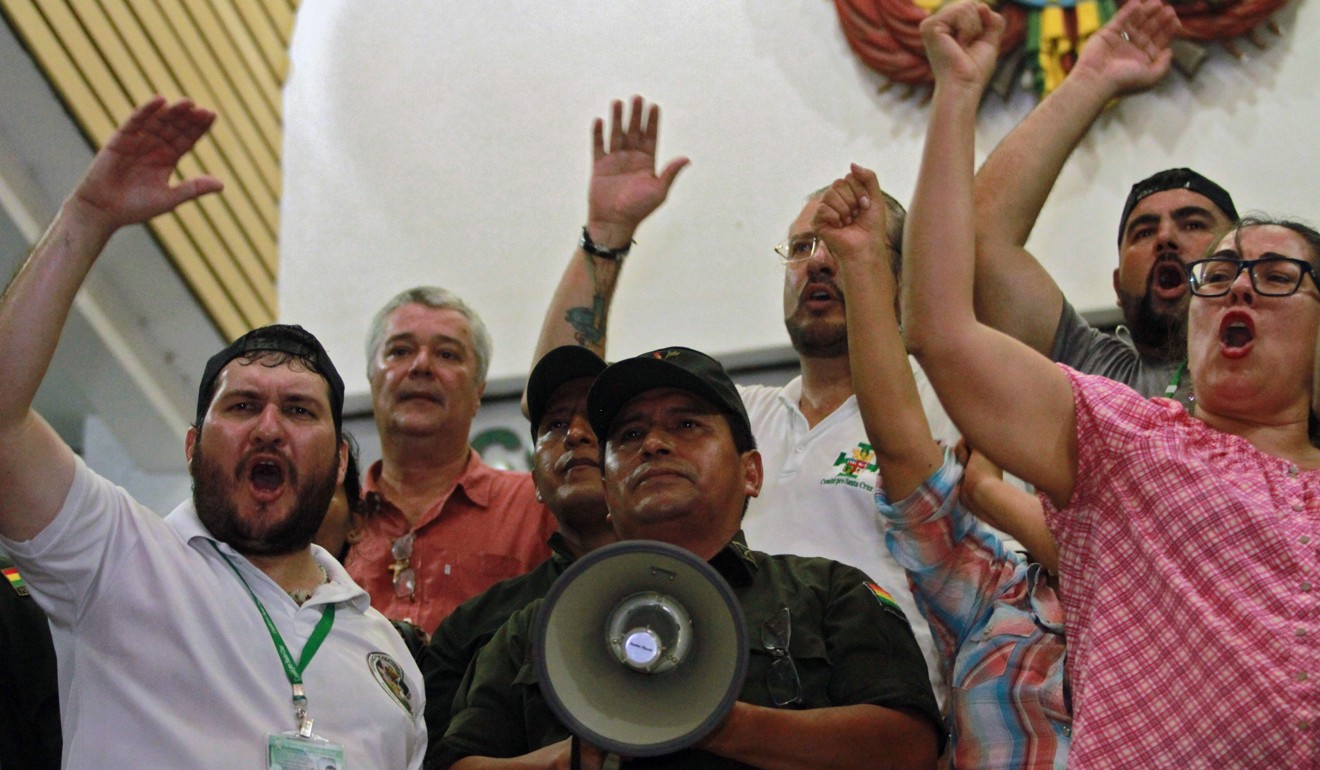
“We are asking for peace. We don’t have a position in favour or against. We are asking that both sides hear us,” said Sergio Rengel, a leader in the tourism sector. “It’s been 17 days in which we’ve been losing about US$5 million a day.”
Morales’ bid for re-election was controversial before it began. The former union leader, and Bolivia’s first indigenous president, has shepherded significant economic growth and an overhaul of the constitution. But he refused to accept the results of a referendum upholding term limits.
The country’s constitutional court later ruled that term limits violated his human right to run for office, and the electoral court ultimately accepted his candidacy for a fourth term.
Additional reporting by Reuters
